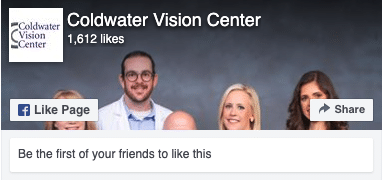What Is Dry Eye: Common Symptoms & Treatment Options
Are you experiencing an eye condition? If so, it may be dry eye; one of the most common eye conditions today. While this disease may cause a few minor symptoms, they can be severe for some people. Luckily, there are a number of treatments that help patients find relief. It’s important to work with a trusted provider to find the best options that work for you!
Here at Coldwater Vision Center, we take pride in our incredible eye care services. Whether you need a new eye exam, contact lenses, or dry eye treatment in Coldwater, MS, we’ve got you covered. Call us today to make an appointment!
Dry Eye: Brief Overview
Dry eye is a common condition involving your eye’s tear film. This film consists of three layers that protect the surface of your eyes. Dry eye disease is characterized by a problem with this film. You may experience symptoms like itching, burning, watering, and blurry vision.
Symptoms of Dry Eye
While some people have minor symptoms, others experience everyday discomfort that significantly impacts their lives. One example is feeling like something is stuck in your eye, which can be quite annoying.
Other common symptoms of dry eye include:
- Light sensitivity
- Stinging or burning sensation
- Blurry vision
- Watery eyes
- Tears running down your face
- Mucus coming out of your eye
While it may sound strange to have watery eyes with a dry eye condition, it’s caused by insufficient oil on the outer layer of your tear film. This occurs when your meibomian glands aren’t working effectively. As a result, the watery layer of your tear film evaporates too fast, which causes your lacrimal glands to make more watery tears to try and compensate.
Dry Eye: Treatment Options
If dry eye causes problematic symptoms, try a few at-home remedies, such as avoiding certain triggers and using a humidifier in your bedroom. Another option involves taking special eye drops like artificial tears, which can help lubricate your eyes and temporarily reduce symptoms. Thermal pulsation therapy and intense pulsed light (IPL) therapy are a few in-office treatments that may be able to help.


